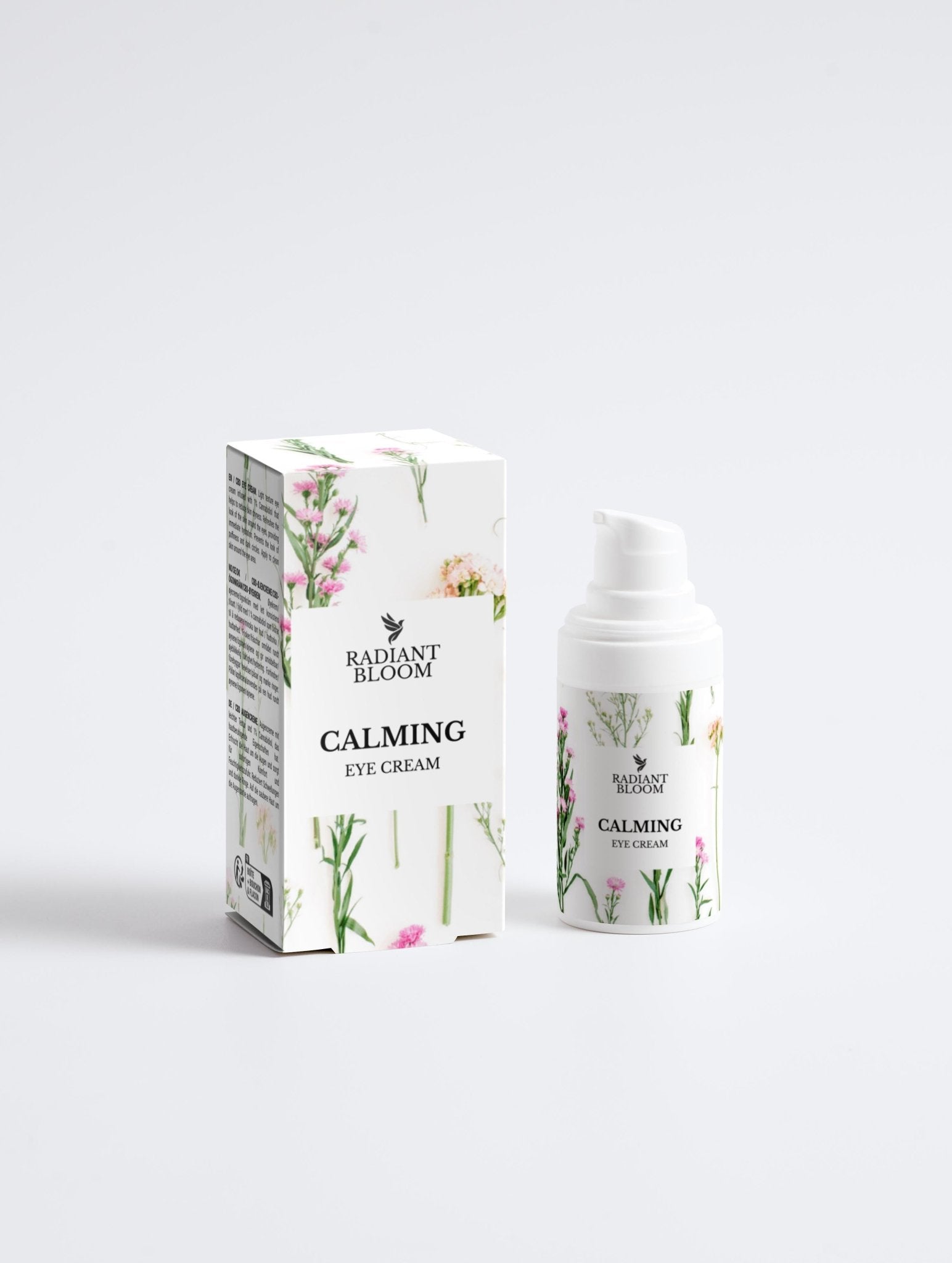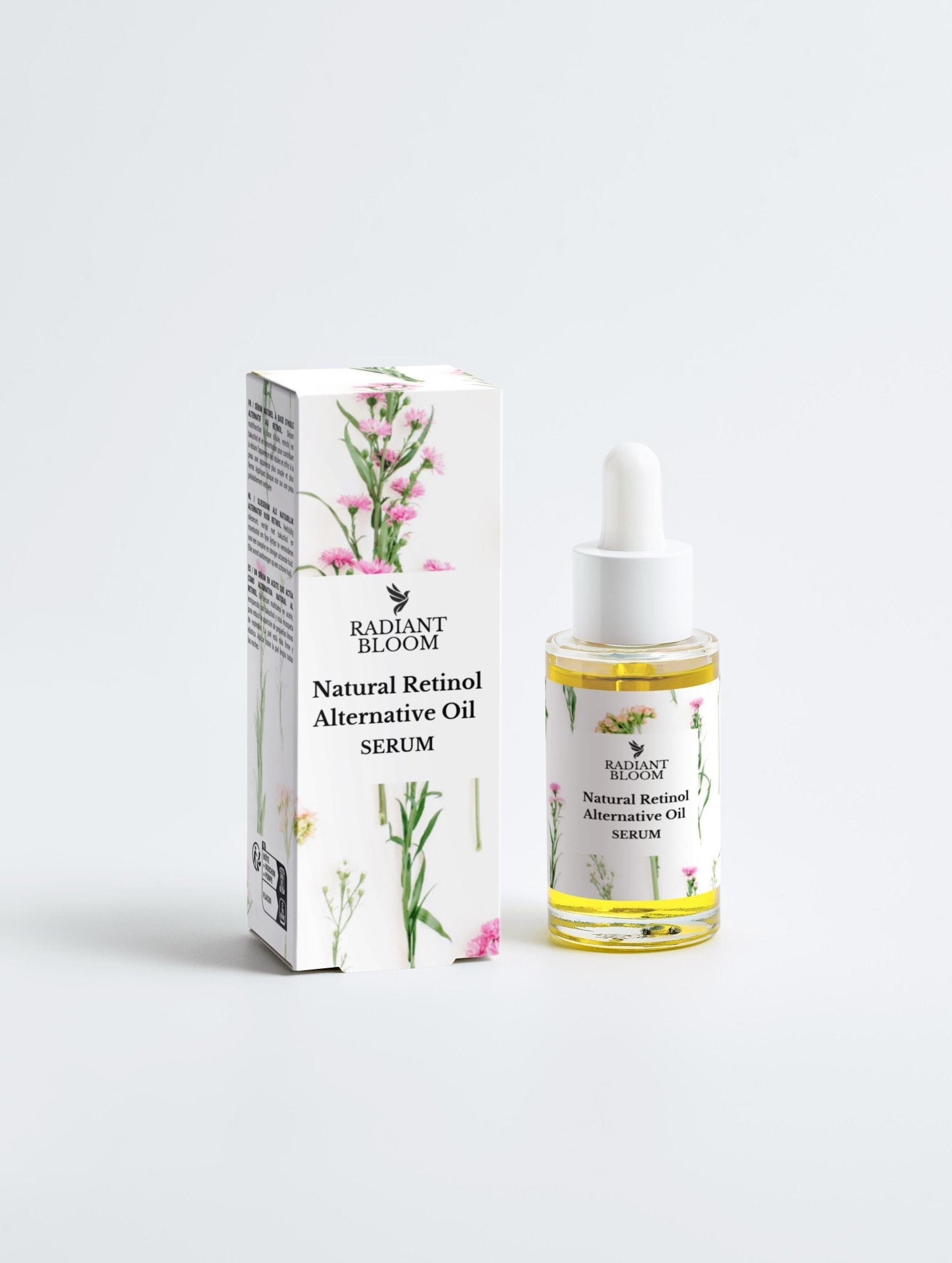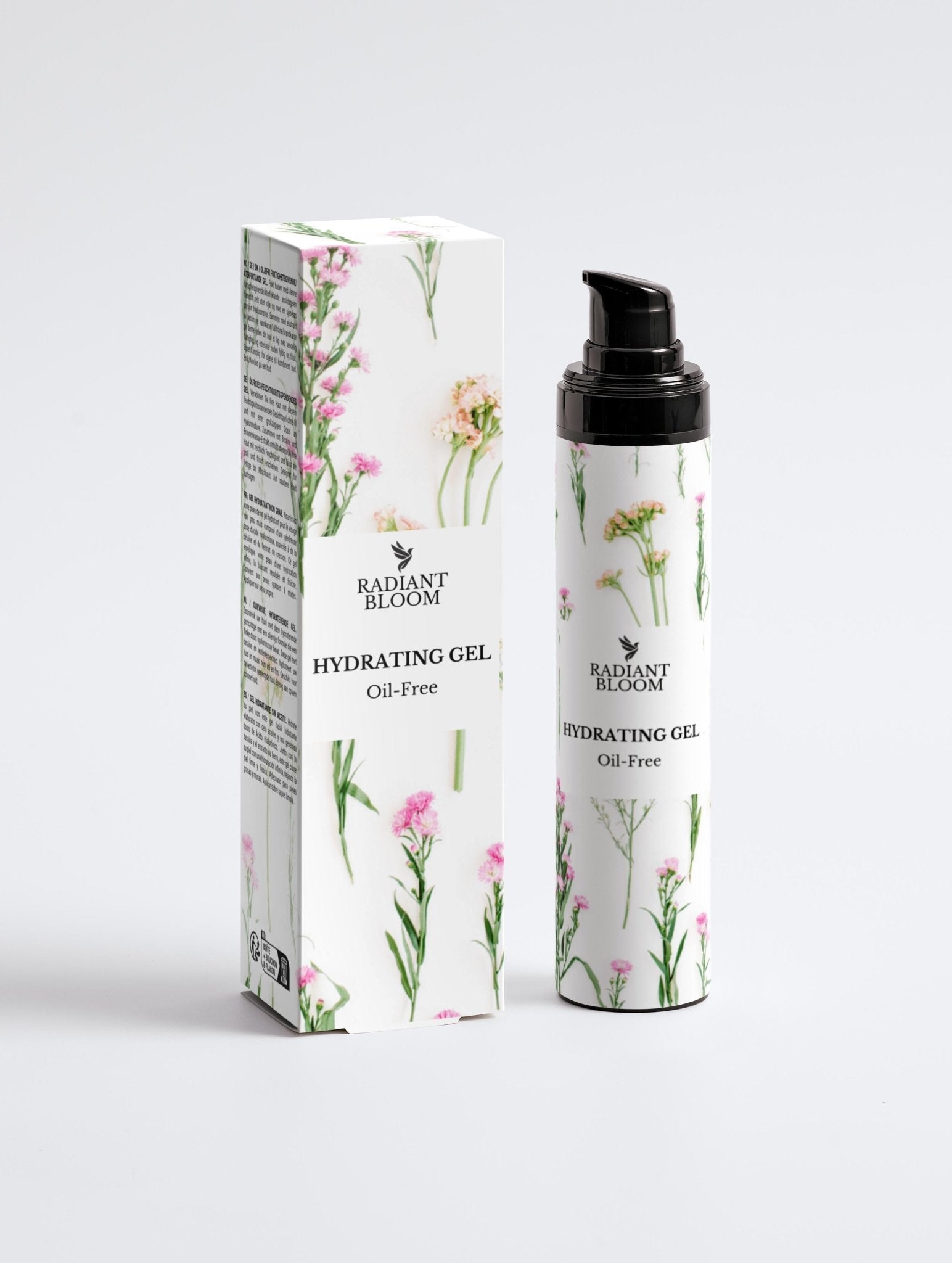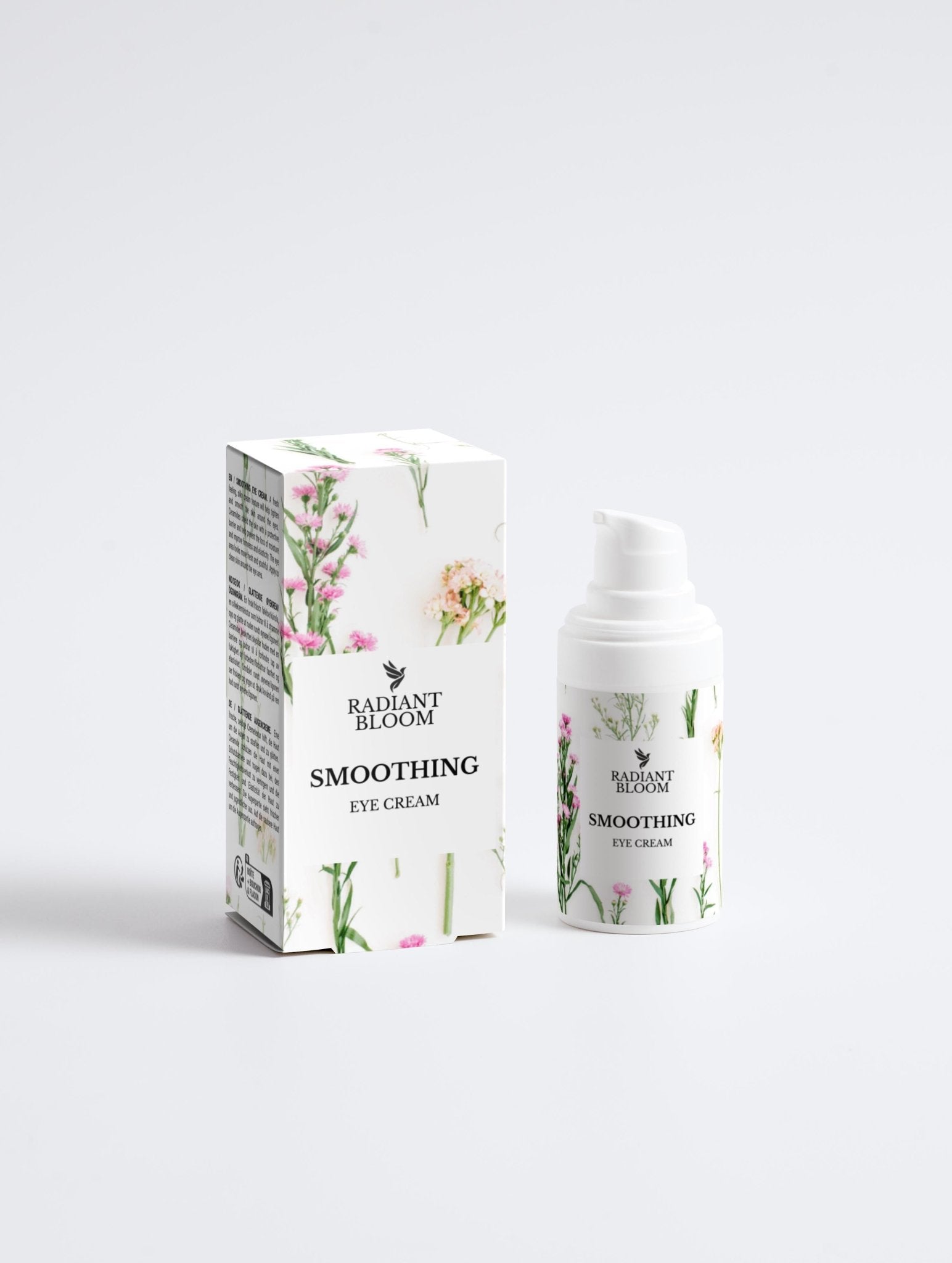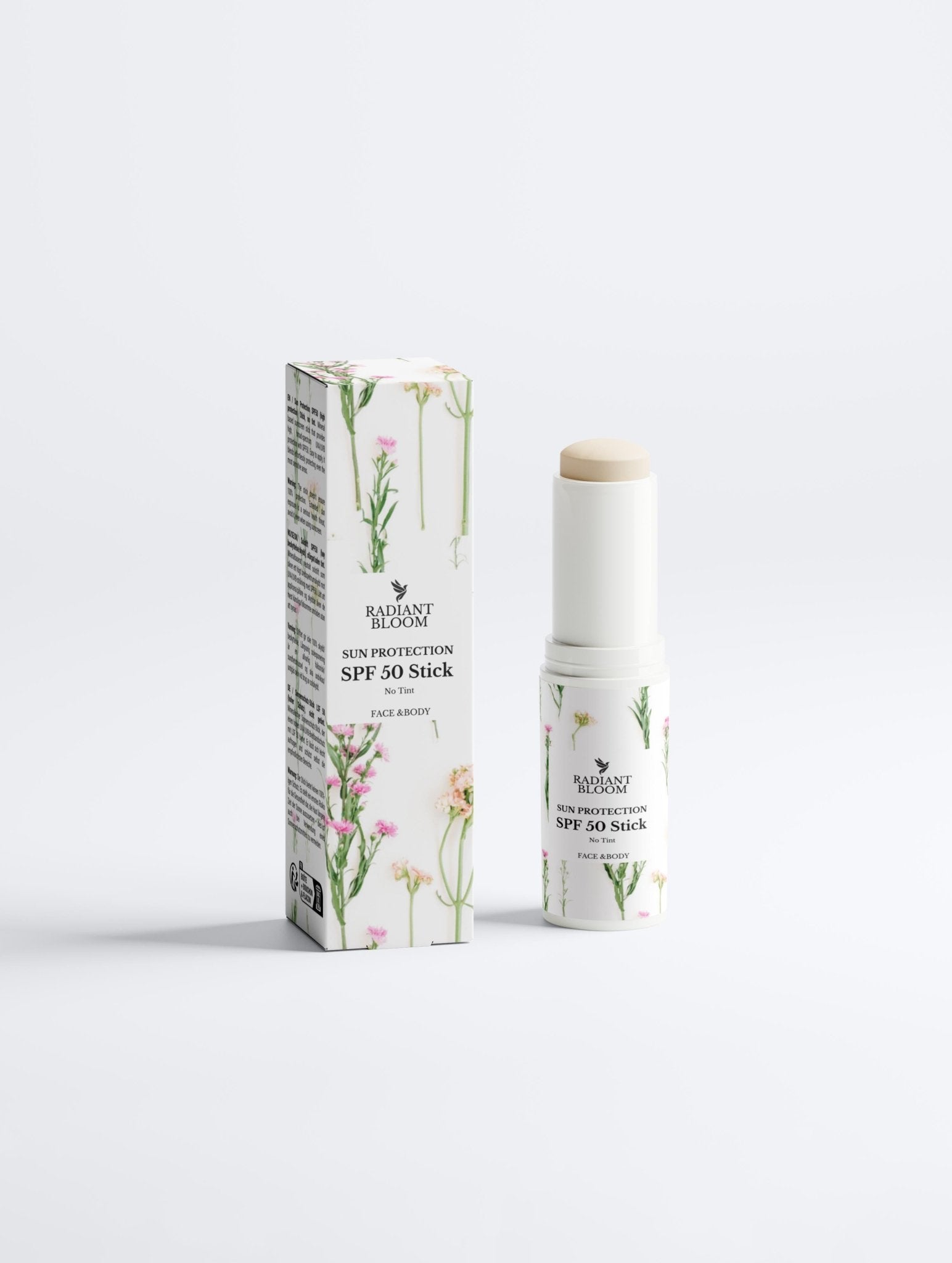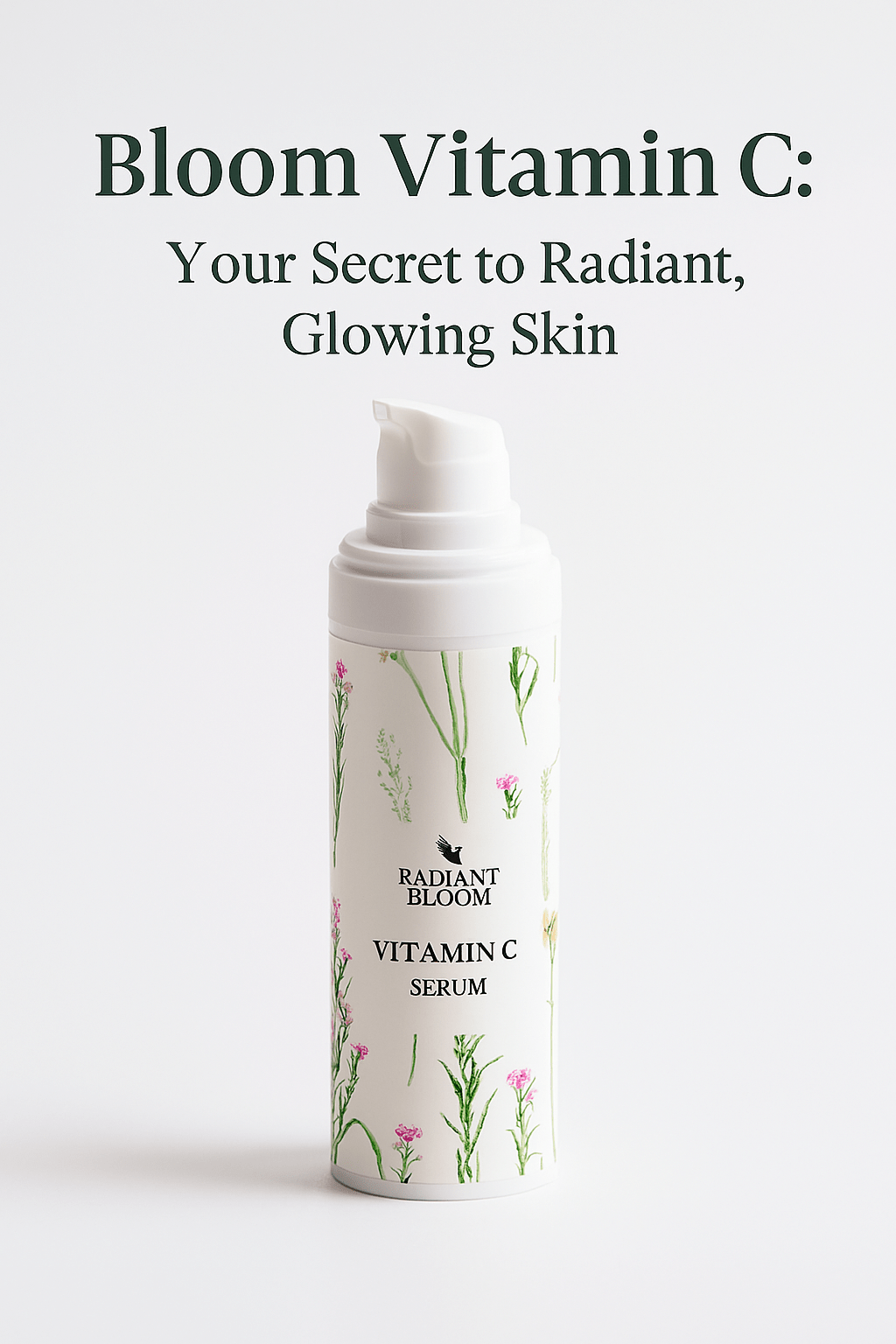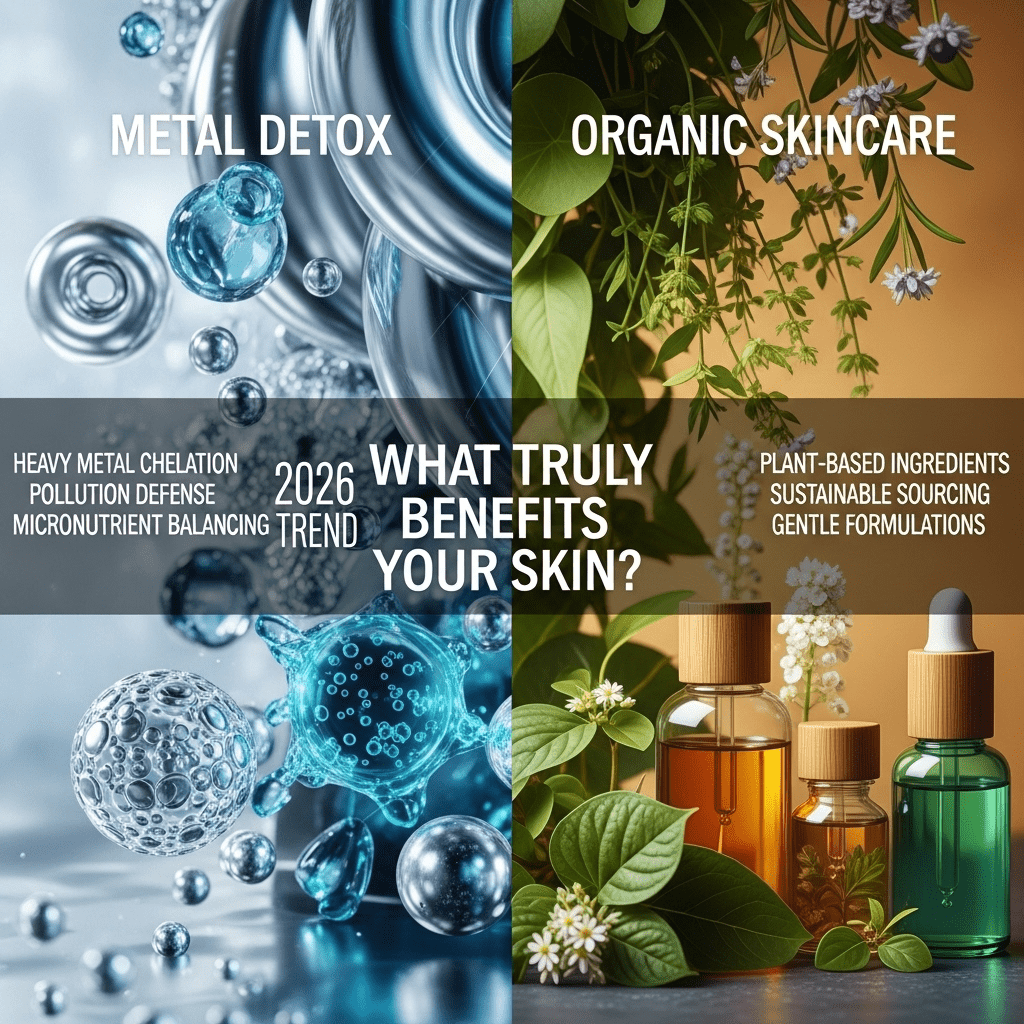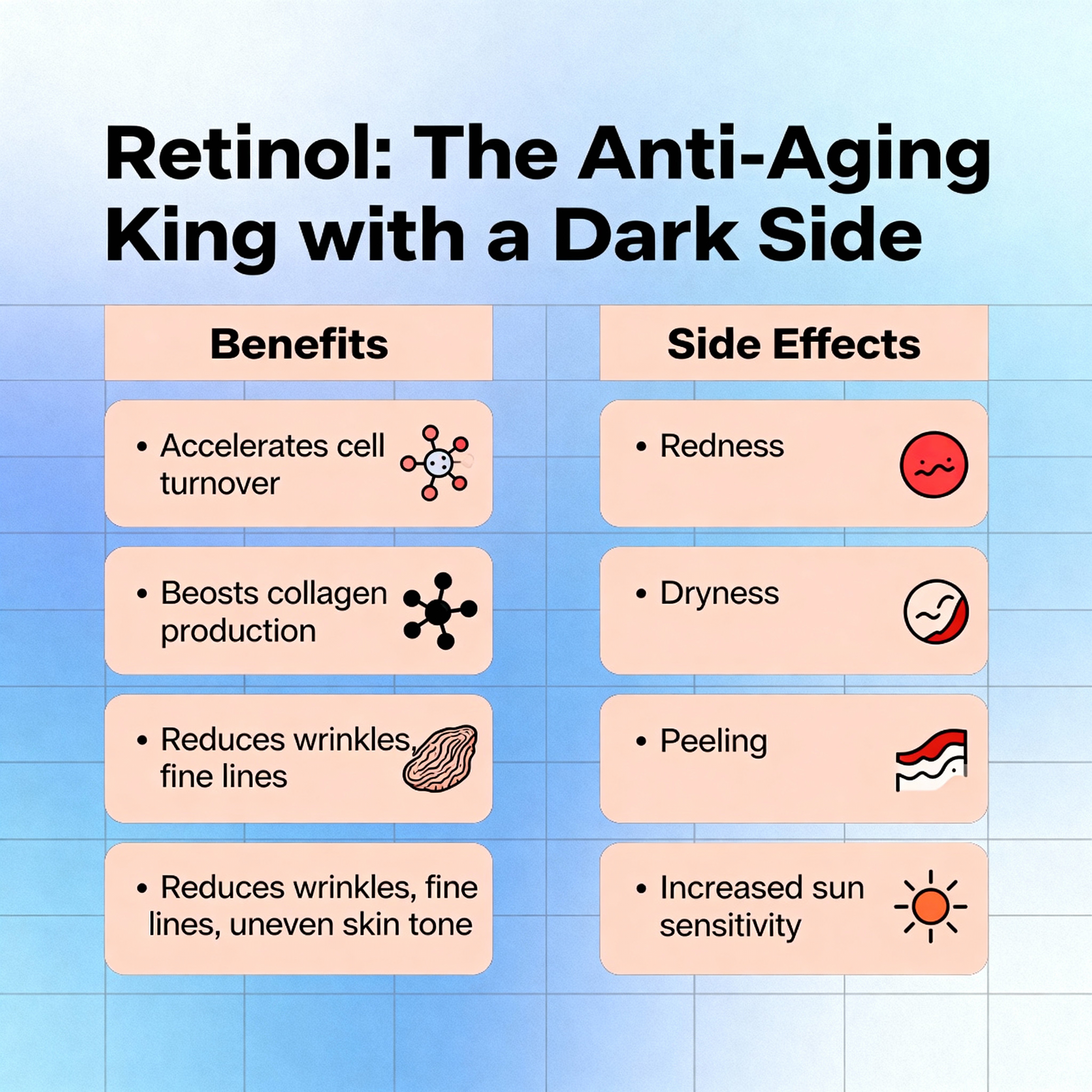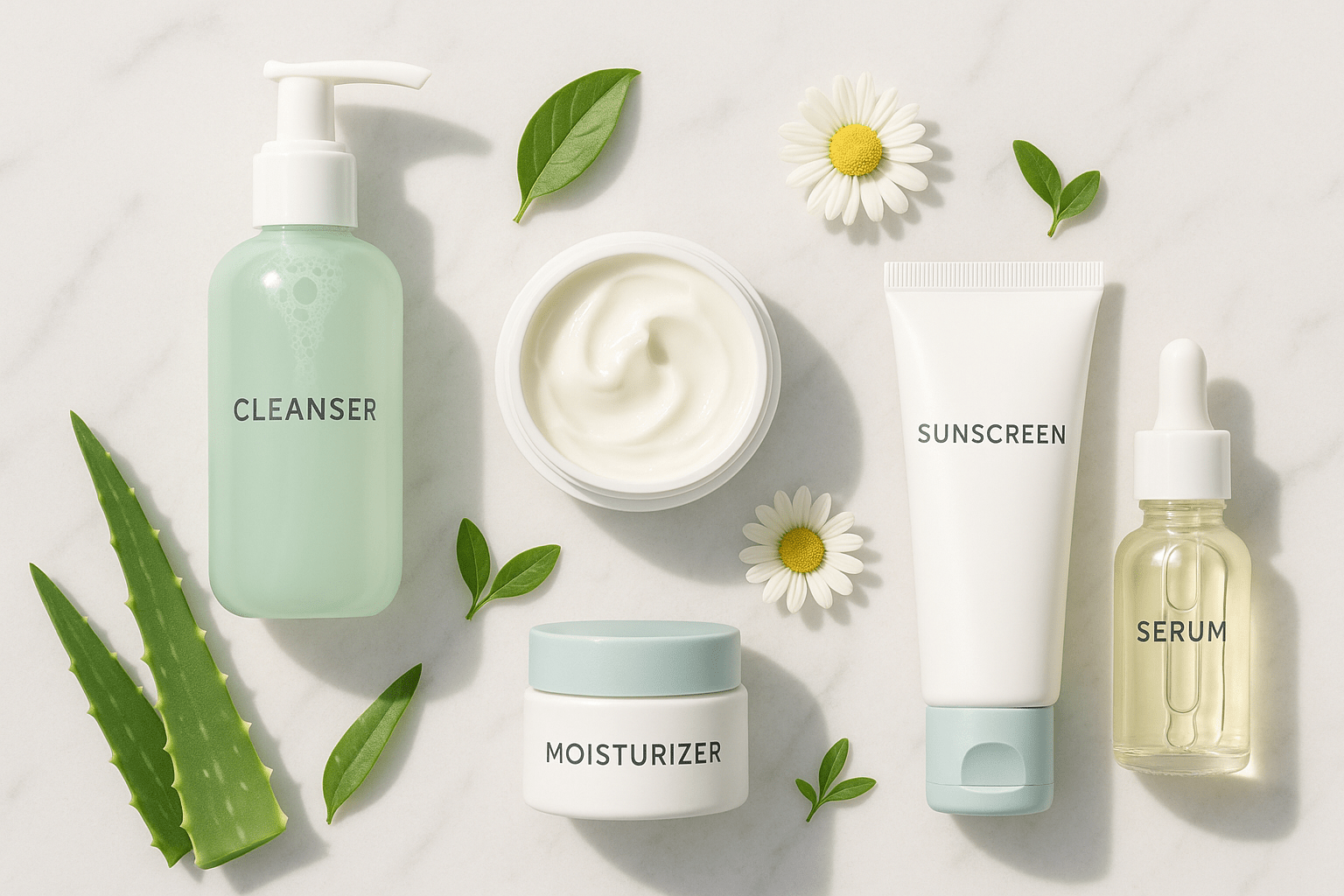In the vast and ever-evolving universe of skincare, few ingredients have achieved the rock-solid, science-backed stardom of Vitamin C. It’s not a fleeting trend or a niche ingredient; it is a universally acclaimed powerhouse that dermatologists, estheticians, and skincare experts agree is a non-negotiable for anyone seeking a healthy, radiant, and youthful complexion. Year after year, it remains one of the most searched-for and recommended ingredients, and for good reason: it works.

But what exactly does it do? How does this humble vitamin, found in our morning orange juice, translate into one of the most effective topical treatments available? From visibly brightening a dull complexion and fading stubborn dark spots to building new collagen and defending your skin against environmental aggressors, Vitamin C is a true multi-tasking hero.
This is your definitive guide to understanding the profound benefits of Vitamin C serum in 2026. We will explore:
-
The science of how Vitamin C works as a potent antioxidant.
-
Its four primary benefits for transforming your skin.
-
The different forms of Vitamin C and why choosing the right one is crucial.
-
How to correctly incorporate it into your routine for maximum impact.
-
Why a natural, organic formulation like the Radiant Bloom Organic Vitamin C Serum elevates its benefits even further.
Get ready to discover why this single ingredient is one of the most powerful investments you can make for the long-term health and beauty of your skin.
Chapter 1: What is Vitamin C and How Does it Work on a Cellular Level?
To appreciate its benefits, we must first understand what Vitamin C is doing beneath the surface of the skin. Vitamin C, in its purest form known as L-Ascorbic Acid, is a potent water-soluble antioxidant. Our bodies cannot produce it on their own, so we must obtain it through diet or, for targeted skin benefits, through topical application.
The Antioxidant Powerhouse
The primary role of Vitamin C in skincare is as an antioxidant. Every day, our skin is under attack from unstable molecules called free radicals. These are generated by environmental factors like UV radiation from the sun, air pollution, and even blue light from our screens. Free radicals are like tiny thieves that steal electrons from our healthy skin cells, causing a chain reaction of damage known as oxidative stress. This process degrades collagen, damages cellular DNA, and is a primary driver of premature aging, inflammation, and hyperpigmentation.
Antioxidants are generous molecules that have a spare electron to donate. When Vitamin C is present in the skin, it generously gives an electron to a free radical, neutralizing it and stopping the damaging chain reaction in its tracks. This protective function is the foundation of all of Vitamin C's other incredible benefits.
The Different Forms of Vitamin C: Stability is Key
While L-Ascorbic Acid is the most potent form, it is also notoriously unstable. It oxidizes (breaks down) very quickly when exposed to light, air, and heat, turning brown and losing its effectiveness. It can also be irritating for many skin types, especially at the high concentrations needed for it to be effective.
For this reason, cosmetic chemists have developed more stable derivatives of Vitamin C. These are compounds that are converted into ascorbic acid by the skin itself. While they may be slightly less potent than the pure form, their stability and gentleness make them far superior for most users.
One of the most effective and gentle modern derivatives is Ascorbyl Tetraisopalmitate. This is an oil-soluble form of Vitamin C that offers several key advantages:
-
Superior Stability: It does not oxidize easily, meaning the product remains potent and effective for longer.
-
Enhanced Penetration: Being oil-soluble, it can penetrate the skin's lipid barrier more effectively than water-soluble forms, reaching the deeper layers where it can stimulate collagen.
-
Gentle on the Skin: It is much less likely to cause the stinging or irritation associated with L-Ascorbic Acid, making it ideal for sensitive skin.
This commitment to gentle efficacy is why Radiant Bloom Organic chooses to formulate with advanced, stable derivatives to ensure you get all the benefits without the drawbacks.
Chapter 2: The Four Pillars of Vitamin C Benefits
Vitamin C’s power can be broken down into four main benefits that collectively lead to a dramatically improved complexion.
Benefit #1: Visibly Brightens Skin and Fades Dark Spots
This is perhaps the most sought-after benefit of Vitamin C. If you struggle with dullness, post-acne marks, sun spots, or an uneven skin tone, Vitamin C is your best friend.
-
How it Works: Hyperpigmentation is caused by the overproduction of melanin, the pigment that gives skin its color. Vitamin C directly interferes with this process by inhibiting an enzyme called tyrosinase. By blocking tyrosinase, it slows down melanin production, which helps to:
-
Fade existing dark spots, making them lighter and less noticeable.
-
Prevent new dark spots from forming.
-
-
The Result: With consistent use, skin becomes visibly brighter, more luminous, and more even-toned. That "lit-from-within" glow everyone wants? That’s Vitamin C at work.
Benefit #2: Boosts Collagen Production for Firmer, Smoother Skin
Collagen is the structural protein that acts like scaffolding for our skin, keeping it firm, plump, and smooth. As we age, our natural collagen production declines, leading to the formation of fine lines and wrinkles.
-
How it Works: Vitamin C plays a critical and essential role as a co-factor in collagen synthesis. It is required for the processes that link amino acids together to form strong, healthy collagen fibers. Without adequate Vitamin C, this process simply cannot happen efficiently. Topical application provides the skin with a direct supply of this essential building block.
-
The Result: By stimulating new collagen production, Vitamin C helps to plump the skin from within. This reduces the appearance of fine lines and wrinkles, improves skin elasticity, and leads to a firmer, more youthful texture over time.
Benefit #3: Provides Powerful Antioxidant Protection
As we discussed, this is the foundational benefit that enables all others. By neutralizing free radicals, Vitamin C provides essential protection against daily environmental damage.
-
How it Works: Think of your morning Vitamin C serum as your skin's daily shield. It works throughout the day to fend off damage from UV rays and pollution that your sunscreen might miss.
-
The Synergistic Effect with Sunscreen: Vitamin C does not replace your sunscreen, but it makes it work better. Studies have shown that using a Vitamin C serum underneath your daily SPF provides more comprehensive protection against sun damage than using sunscreen alone. The sunscreen blocks or absorbs UV rays, and the Vitamin C neutralizes any free radicals that still manage to get through. This powerful duo is your ultimate defense against premature aging. This is why our guide on adding mineral sunscreen to your routine is a must-read.
Benefit #4: Reduces Inflammation and Redness
While known for brightening, Vitamin C is also a potent anti-inflammatory agent.
-
How it Works: It can help to calm the inflammatory cascade in the skin, which is beneficial for a number of conditions. It helps reduce the redness associated with acne breakouts and can soothe general skin reactivity.
-
The Result: A calmer, less blotchy, and more even-toned complexion.
Chapter 3: How to Use Vitamin C Serum for Maximum Results
To get the most out of this powerhouse ingredient, proper usage and layering are key. For a comprehensive overview of application order, consult our Ultimate Guide to Layering Skincare.
When to Apply: Morning is Best
While you can use Vitamin C at night, applying it in the morning is universally recommended by experts. This is because its primary role as an antioxidant is most needed during the day, when your skin is exposed to UV light and pollution. Applying it in the AM provides a day-long shield of protection.
The Correct Layering Sequence
Your Vitamin C serum should be applied after cleansing and toning, but before moisturizing and sunscreen.
The ideal morning routine looks like this:
-
Cleanse: Start with a clean canvas.
-
Tone (Optional): Apply a hydrating toner.
-
Apply Vitamin C Serum: Dispense 3-4 drops and gently press into your face and neck. Wait about 60 seconds for it to fully absorb.
-
Moisturize: Apply your daily moisturizer.
-
Sunscreen: Finish with a broad-spectrum SPF 30 or higher. This step is non-negotiable when using a Vitamin C serum.
Smart Pairings: What to Use (and Not Use) with Vitamin C
-
Do Pair With:
-
Vitamin E and Ferulic Acid: These are other antioxidants that have a synergistic effect with Vitamin C, making it more stable and potent. Many high-quality serums are formulated with this trio.
-
Hyaluronic Acid: A perfect partner. Hyaluronic acid provides hydration while Vitamin C protects and brightens.
-
Sunscreen: Your essential daily duo for ultimate protection.
-
-
Use with Caution:
-
Retinol: While you can use both in your routine, it's generally best to use Vitamin C in the morning and Retinol (or a natural alternative like Bakuchiol) at night to avoid potential irritation.
-
AHAs/BHAs (Exfoliating Acids): Similar to retinol, it's safest to use these on alternate days or at different times of day (e.g., acids at night, Vitamin C in the morning).
-
Benzoyl Peroxide: This acne treatment can oxidize Vitamin C, making it less effective. Use them at different times of day.
-
Chapter 4: Why a Natural & Organic Vitamin C Serum is the Superior Choice
Not all Vitamin C serums are created equal. Choosing a natural and organic formulation provides significant advantages, especially for those with sensitive skin.
-
Superior Stability and Gentleness: As mentioned, organic brands often opt for advanced, stable derivatives of Vitamin C that are less likely to cause irritation. This means you can get the benefits without the sting.
-
Synergistic Botanical Ingredients: Organic serums don't just contain Vitamin C in isolation. They are formulated within a base of other antioxidant-rich botanical oils and extracts, like Green Tea, Rosehip, or Sea Buckthorn. These ingredients work together to enhance the overall antioxidant and nourishing benefits of the formula.
-
Free from Harsh Additives: Certified organic serums are free from synthetic fragrances, drying alcohols, parabens, and other potential irritants that can undermine the benefits of Vitamin C and cause sensitivity.
-
Higher Overall Quality: The commitment to organic certification reflects a brand's dedication to purity, quality, and efficacy from start to finish.
This is the philosophy behind the Radiant Bloom Organic Vitamin C Serum. We use a stable, potent, oil-soluble form of Vitamin C nestled in a luxurious blend of certified organic botanical oils. This ensures maximum efficacy, superior stability, and a gentle, nourishing experience for all skin types.
Chapter 5: Frequently Asked Questions
Q1: My Vitamin C serum turned brown. Can I still use it?
A: No. A brown or dark orange color is a sign that the Vitamin C has oxidized and is no longer effective. In fact, oxidized Vitamin C can act as a pro-oxidant and potentially cause more harm than good. This is why choosing a stable formula is so important.
Q2: How long does it take to see results?
A: With consistent daily use, most people begin to notice a brighter, more radiant complexion within 4 to 8 weeks. Improvements in hyperpigmentation and firmness will take longer, typically around 3 to 6 months.
Q3: I have sensitive skin. Can I use Vitamin C?
A: Absolutely! The key is to choose the right formula. Opt for a serum with a stable derivative like Ascorbyl Tetraisopalmitate, and start by using it every other day to allow your skin to acclimate. Our Vitamin C Serum is specifically designed with sensitivity in mind.
Q4: Can Vitamin C help with acne?
A: Yes. Its anti-inflammatory properties can help to reduce the redness and swelling of active breakouts. By protecting against oxidative stress, it can also help prevent the clogged pores that lead to acne in the first place.
Conclusion: Your Daily Dose of Radiance and Protection
Vitamin C serum has more than earned its place in the skincare hall of fame. It is a true multi-tasking essential that addresses nearly every major skin concern, from dullness and dark spots to wrinkles and environmental damage. By incorporating a high-quality, stable, and natural Vitamin C serum into your morning routine, you are making a powerful, proactive investment in your skin's long-term health and vitality.
It is the key to unlocking a brighter, firmer, and more resilient complexion. It’s your daily shield, your collagen booster, and your radiance restorer, all in one bottle.
Ready to experience the transformative power of this incredible ingredient? Discover the Radiant Bloom Organic Vitamin C Serum and give your skin the daily protection and glow it deserves.

